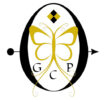Today we gathered for the intermediate course at IGHR 2016 — a genuine GEG fest. A room full of people who want to do genealogy right. Our lectures included genealogy’s essential skills, power search techniques, and the now-universal FAN concept — or “cluster research.” (This diary began at Sunday’s Orientation.)
Monday, June 13, 2016
Twenty-seven of us gathered in a science classroom in Propst Hall early this morning. My classmates came from far and wide — California to Maryland and Minnesota to Louisiana. In true GEG fashion, we were excited about spending our vacations in school. One classmate summed it up perfectly in saying, “We’re slightly weird in the real world.” And aren’t we happy to be?
We spent the first half-hour going around the room introducing ourselves and telling a bit about what brought us here. Among us are some professional genealogists, but mostly we are personal genealogists who want to be as good as professionals. Over and over, I heard the phrase, “I want to learn to do this right.” I had definitely found my way to the GEG class.
At 11:15am, we hiked to Samford’s library for box lunches. Seven of us packed around a table for four and began to talk DNA. Most of us had done DNA tests on ourselves and family members. Each had a story to tell of their discoveries. One of the seven, a scientist for the EPA, taught us much about how DNA works. We enjoyed an impromptu lunch-and-learn.
That’s one of the wonderful things about genealogy. We’re all mastering different things at different times, depending upon the needs of our own family trees. So everyone is a beginner on the one hand. And everyone is an expert on the other.
Our intermediate genealogy courses
Today, Angela Packer McGhie, Dr. Kimberly Powell, and Dr. Deborah Abbott taught us “essential skills,” advanced census research, power online search strategies, and cluster research. We packed the day with insights. There is a good reason students describe IGHR as “intensive.” Let’s start with the first lecture.
Essential skills for genealogists
Angela started us off with the high points of all we will be doing for the rest of the week. Already I am becoming conscious of areas where I need improvement. Perhaps most important of all, she brought home a point I need to internalize:
Work on one ancestor at a time. One question at a time.
Following Ancestry hint leaves, while fun, fragments the process and rarely meets the Genealogy Proof Standard. Concentration is key.
Advanced census research
Censuses are Genealogy 101, right? Angela demonstrated what we miss when we fail to extract full data from the federal censuses. But the super value of this lecture for me came when she got beyond the federal censuses and to the ones I have tended to ignore. State censuses and slave, mortality, agricultural, and manufacturing schedules. Our ancestors went through red tape, like we do. We just need to find it. And now I’m better equipped to do that.
Online search strategies
 Dr. Kimberly Powell took the podium mid-morning. She served as a past president of the Association for Professional Genealogists. These days, she offers her expertise to beginner- and intermediate-level genealogists on About.com. She is particularly strong in archival and online research.
Dr. Kimberly Powell took the podium mid-morning. She served as a past president of the Association for Professional Genealogists. These days, she offers her expertise to beginner- and intermediate-level genealogists on About.com. She is particularly strong in archival and online research.
For our class, she demonstrated how to go deeper in online searches, everything from power Googling to mining the resources of FamilySearch and Ancestry.com. The most important thing I walked away with from Kimberly? Don’t rely on the global searches in Ancestry and FamilySearch. Search viable collections one at a time.
Cluster research
 Dr. Deborah Abbott, an expert in African American genealogical research, presented the last lecture of the day. She lectures for Ancestry Academy, one of my favorite learning venues.
Dr. Deborah Abbott, an expert in African American genealogical research, presented the last lecture of the day. She lectures for Ancestry Academy, one of my favorite learning venues.
Before she began, I worried about my drooping eyelids. I had little sleep over the weekend and had been struggling all day. We were all getting tired. Then, Deborah chose (rightly) to dim the lights in the room, so that we could see the presentation well. Oh, dear. Could she keep me awake?
I had nothing to worry about. She was the perfect choice for the last lecture of the day. What an entertaining, dynamic speaker! And what valuable knowledge.
Deborah walked us through “cluster research,” the concept becoming universally known as the “FAN club” — Friends, Acquaintances, Neighbors — originated by Elizabeth Shown Mills. Deborah used my favorite teaching technique, a case study, to demonstrate the power of the cluster.
The case study called “Where is Paul McMickle” addressed a situation in which Paul McMickle’s family never appeared together as a unit in records. Deborah demonstrated that the family could be reconstructed, one linked record at a time. Illuminating and entertaining.
And I never nodded off. Not once.
Monday wrap-up
Monday offered an excellent start to the Intermediate Genealogy & Historical Studies course. I was surrounded by smart, smart people. And that’s not just the teachers. I end the day tired, but so glad I have this opportunity.
Continue to Immigration, Naturalization, and Genetic Genealogy: IGHR Tuesday (3 of 6).






